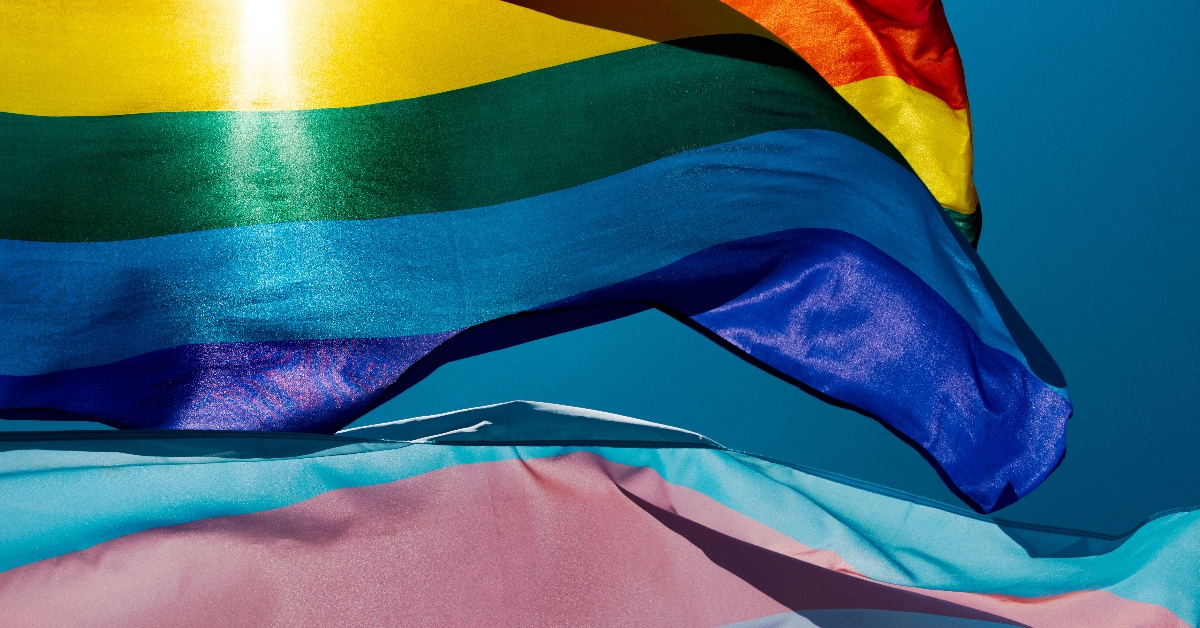The Equality and Human Rights Commission (EHRC) says “more detailed consideration is needed” before any changes are made to the Gender Recognition Act.
The equality body has written to the Scottish Government outlining its position on proposed changes to the act, which would make it easier for trans people to legally change their gender.
The draft Gender Recognition Bill plans to reduce to six months the time it takes for transgender people to get a gender recognition certificate (GRC).
Applicants would first have to live as their acquired gender for a minimum of three months before seeking a GRC, with a further three-month period of “reflection” being required before this can be confirmed.
Detractors say making it easier for transgender people to self-identify their own gender could endanger women and girls, but supporters claim reform is about providing dignity for one of the most maligned groups of people in society.
The debate, which has been subject to two public consultations from the Scottish Government, came into sharp focus after a power-sharing agreement was reached between the SNP and the Scottish Greens after last year’s Holyrood election.
Trans people must currently live in their “acquired gender” for two years and have a formal diagnosis of gender dysphoria in order to obtain a GRC.
First Minister Nicola Sturgeon has previously said some opposition to reform of the Gender Recognition Act is “sincerely held” but “not valid”.
In its letter to the Scottish Government, the EHRC said: “We recognise that many trans people have criticised the current process to obtain a GRC as being intrusive, medically-based, bureaucratic, expensive and lengthy.
“We welcomed the UK Government’s reduction of the fee for obtaining a GRC and commitment to digitalize the process, which we encourage them to deliver at speed.
“We are also concerned about the unacceptably long waiting times for gender identity services – in some cases over five years for an initial appointment.
“We strongly welcome your commitment to improve gender identity services in Scotland so that individuals with gender dysphoria can obtain the support and treatment they need and begin the process of gaining legal recognition of their acquired gender. We continue to press the UK Government to progress improvements.”
Last September, the Scottish Government said it was pushing ahead with controversial plans to reform the legal process around gender recognition after more than 17,000 individuals and organisations from Scotland, the rest of the UK and all over the world gave their views on the planned changes.
A “small majority” of organisations who responded to the consultation were broadly in favour.
Groups backing the reforms included the “considerable majority” of organisations representing children and young people, as well as LGBT groups, trade unions, local authorities and third sector bodies.
However the report acknowledged that “around four in ten organisations did not support” the changes, and about one in ten either did not have a view or did not make it clear.
In a statement issued on Wednesday, EHRC said: “The current polarised debate is causing much harm and distress to people on all sides. Everyone’s concerns should be discussed and addressed carefully, openly and with respect, to avoid further damage and division.
“In light of the concerns raised since proposals to reform the Gender Recognition Act were consulted on, we have come to the view that further consideration is needed before any change to the law should be made.
“But we continue to call strongly for improvements to how it is implemented in practice, including far more and far faster services for people with gender dysphoria.”
The Equality Network – a national LGBTI organisation in Scotland – and its project Scottish Trans accused the EHRC of “failing to stand up for equality for trans people”.
Tim Hopkins, the Equality Network’s director said: “The EHRC is not independent of government, but has its board directly appointed by (foreign secretary) Liz Truss and the UK Government.
“We assume that their appointees are responsible for this letter and for failing to stand up for equality for trans people.
“We do not need UK Government appointees telling us in Scotland how to legislate in devolved areas, and we look forward to the Scottish Government proceeding with this legislation soon, as has been promised many times.”
Scottish Greens equalities spokesperson Maggie Chapman also said it was a “deeply disappointing intervention from a UK body supposedly about defending the rights of vulnerable people”.
She said: “While I’m glad the EHRC has recognised the clear need for improved access to gender services, to further delay long-overdue legislation reform to enable trans people to be who they are with fewer barriers will do little but amplify those voices who cruelly portray them as a threat.
“Scotland has had two consultations on GRA reform already. And the forthcoming proposals will be subject to significant scrutiny and debate in the parliamentary process.
“An addition, this letter raises issues that are absolutely nothing to do with the proposed reforms to the GRA in Scotland. If people have issues with definitions in the Equality Act 2010, then they should raise them there.
“Trans people who have already waited far too many years for these basic reforms will be dismayed by the prospect of further delay, which is why the Scottish Parliament must ensure we follow the nations who have already led on this.”
Follow STV News on WhatsApp
Scan the QR code on your mobile device for all the latest news from around the country


 iStock
iStock

























